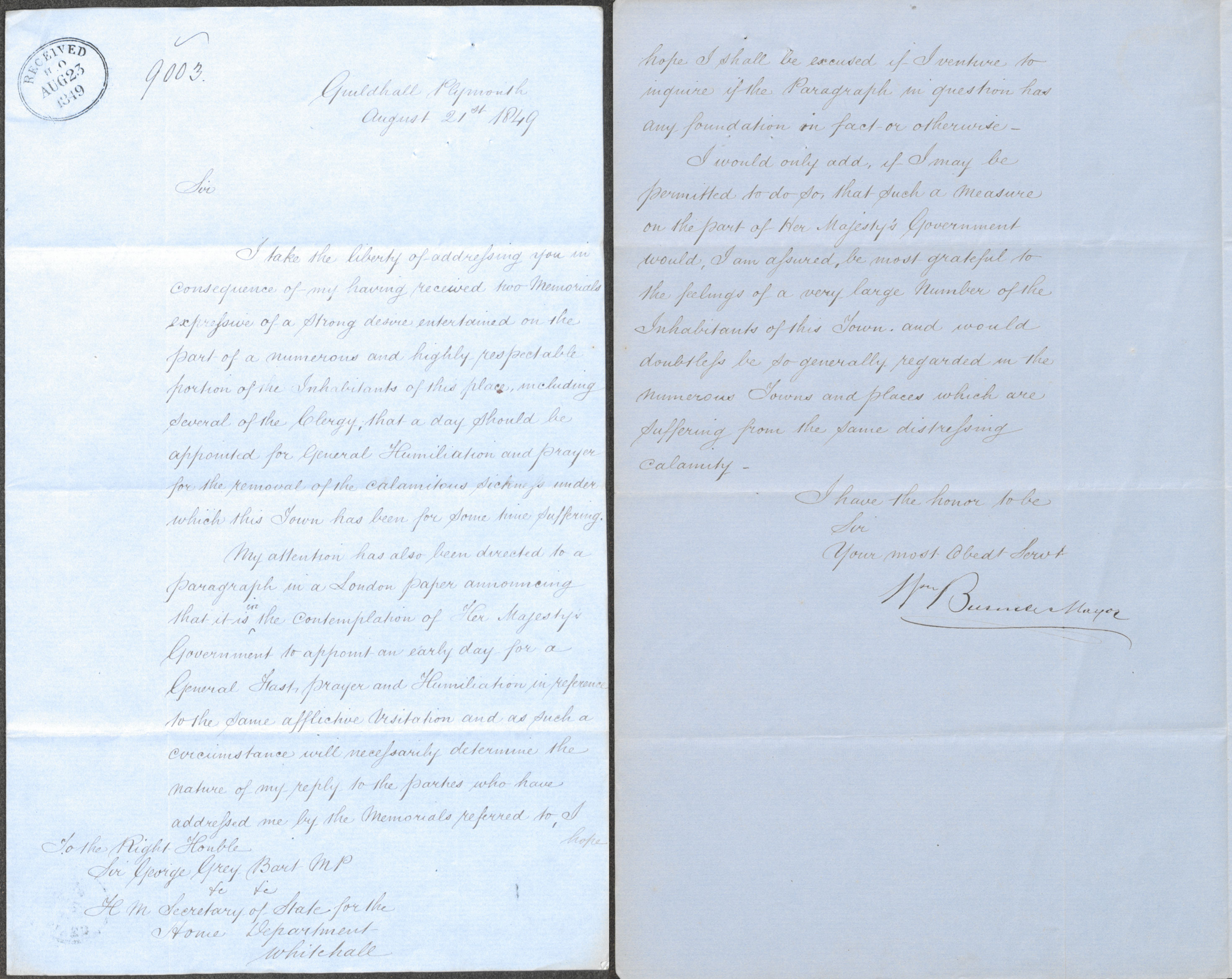
Letter from the Mayor of Plymouth, dated 21 August 1849, written to the Secretary of State at the Home Office. This was at the time of the second major cholera epidemic which prompted the first Public Health Act 1848, Catalogue reference: HO 45/2755.
August 21st 1849
Sir
I take the liberty of addressing you in consequence of my having received two memorials [petitions] expressive of a strong desire entertained on the part of a numerous and highly respectable portion of the Inhabitants of this place, including several of the Clergy, that a day should be appointed for General Humiliation and prayer [day of fasting & prayer as cholera was a signal God’s judgement] for the removal of the calamitous [disastrous] sickness under which this Town has been for some time suffering.
My attention has also been directed to a paragraph in a London paper announcing that it is in the Contemplation [thought] of Her Majesty’s Government to appoint an early day for a General Fast, Prayer and Humiliation in reference to the same afflictive [painful] visitation and as such a circumstance will necessarily determine the nature of my reply to the parties who have addressed me by the memorials referred to, I hope I shall be excused if I venture to inquire if the Paragraph in question has any foundation in fact or otherwise.
I would only add, if I may be permitted to do so, that such a measure on the part of Her Majesty’s Government would, I am assured, be most grateful to the feelings of a very large number of the Inhabitants of this Town and would doubtless be so generally regarded in the numerous Towns and places which are suffering from the same distressing calamity [disaster].
…
I have the honour to be Sir Your most Obedt Servt [Obedient Servant]
To the Right [Honourable]
Sir George Grey Bart MP
HM Secretary of State for the
Home Department
Whitehall
- What does the language used in the document infer about attitudes towards the disease?
- Does the document reveal anything about treatment for cholera?
- Does this letter suggest any change in the understanding of the causes of the disease as shown by the earlier sources from the 1830s?
